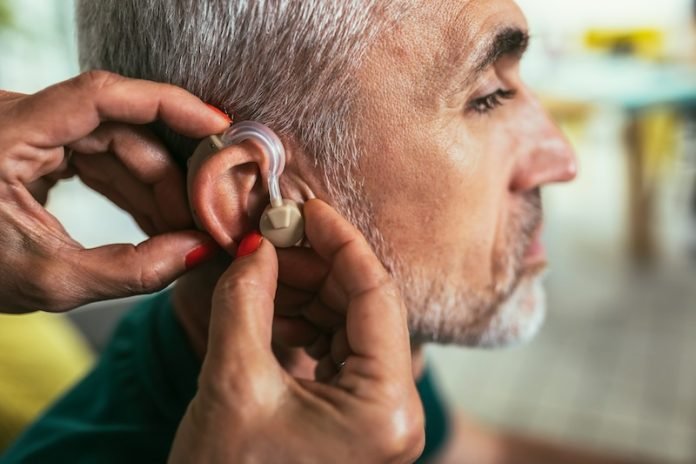
Hearing loss is a widespread condition that affects millions of people globally.
It can happen gradually as you age or suddenly depending on various factors. Understanding the causes of hearing loss is crucial for prevention and early intervention.
This review explains the common causes of hearing loss in simple terms, supported by research, to make the information accessible to everyone.
One of the most prevalent causes of hearing loss is exposure to loud noise. This can occur from one-time exposures to intense sounds, like explosions, or from regular exposure to loud noises, such as machinery at work, loud music, or even frequent use of earphones at a high volume.
The loud sounds damage the tiny hair cells in the inner ear that send sound messages to the brain. Once these hair cells are damaged, they do not grow back, leading to permanent hearing loss.
Age-related hearing loss, also known as presbycusis, is another common cause. It typically occurs in both ears and progresses gradually as people get older.
This type of hearing loss results from the natural aging of auditory cells in the ear, making it harder for older adults to hear faint sounds or to tolerate loud noises. Research has shown that genetics may play a role in how susceptible you are to age-related hearing loss.
Infections are also a significant factor. Ear infections can cause temporary hearing loss that may become permanent if not properly treated. Certain infectious diseases such as meningitis, mumps, and measles can lead to more severe auditory damage.
Another notable cause is the buildup of earwax. While earwax is natural and serves to protect the ear canal from bacteria and debris, too much earwax can block the ear canal and hinder the transmission of sound waves. This type of hearing loss can usually be reversed with professional earwax removal.
Some medications, known as ototoxic medications, can also contribute to hearing loss. These include certain antibiotics, cancer chemotherapy drugs, and drugs used to treat erectile dysfunction.
Usually, this type of hearing loss is associated with higher doses and prolonged use of these medications.
Medical conditions that affect the inner ear or the auditory nerve can also lead to hearing loss.
Conditions such as otosclerosis (a hereditary disorder causing bone growth in the ears), Meniere’s disease (a disorder of the inner ear that affects balance and hearing), and tumors on the auditory nerve all affect how sound signals are processed by the ear.
Lifestyle and environmental factors also influence hearing health. Smoking, for example, has been linked to an increased risk of hearing loss because it interferes with the neurotransmitters in the auditory nerve, which are responsible for processing sound.
Similarly, poor diet and lack of exercise can decrease blood circulation, including to the ears, affecting hearing.
Preventive measures can significantly reduce the risk of developing hearing loss.
Protecting your ears from loud noises by using earplugs or earmuffs, avoiding prolonged use of headphones, especially at high volumes, and managing health conditions that can affect your hearing are all effective strategies.
Regular check-ups and ear cleaning can also prevent complications from earwax buildup and infections.
Understanding and addressing these common causes of hearing loss can help maintain hearing health longer and more effectively. It’s essential for individuals to be aware of the risk factors and take proactive steps to protect their hearing, ensuring a better quality of life as they age.
If you care about hearing loss, please read studies about antibiotic drug that can lead to hearing loss, and whether you should get an hearing aid or see a specialist.
If you care about dementia, please read studies about how the Mediterranean diet could protect your brain health, and these antioxidants could help reduce dementia risk.
Copyright © 2024 Knowridge Science Report. All rights reserved.



